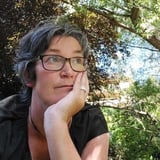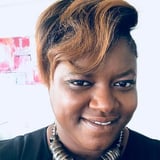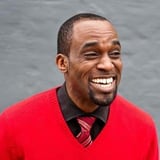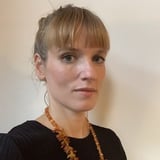Log in or create a free Rosenverse account to watch this video.
Log in Create free account100s of community videos are available to free members. Conference talks are generally available to Gold members.
Summary
The third in a series of discussions centered around Climate UX. To make an impact on the climate, many different audiences will need to understand and use climate science. But the science is complex and evolving rapidly. How might we best approach it as translators and facilitators? Through case studies and discussion you’ll learn how four designers are doing this today. Panelists: Ted Booth, HK Dunston, Andrew Otwell; Moderated by: Victor Lombardi
Key Insights
-
•
Climate UX involves translating highly complex and evolving scientific data into usable, understandable formats tailored to different audiences like journalists, scientists, and consumers.
-
•
Victor Lombardi’s Climate Shift Index uses real-time algorithms to model climate change attribution for weather events, making attribution science accessible for daily media use.
-
•
Scientists strongly prefer literal, detailed representations of data over metaphorical or simplified visuals, as abstraction can cause mistrust and suspicion.
-
•
Designing for scientists requires embracing their mental models—frequently based on Excel-like grids and ‘clunky’ graphs—instead of pushing novel visualizations.
-
•
Ted Booth’s startup uses ambient sensing (monitoring the environment rather than equipment directly) combined with AI to predict HVAC system efficiency and maintenance needs.
-
•
Invention in climate tech often involves creating new units of measure and visualization approaches, like degrees Fahrenheit per hour to represent HVAC performance.
-
•
HK emphasizes the role of culture, art, and storytelling alongside science to interpret and react to climate change, as science alone cannot guide human response.
-
•
Learning to design in scientific domains often requires humility, asking many questions, and grappling with unfamiliar foundational knowledge rather than relying on metaphor.
-
•
Science prioritizes avoiding false positives (identifying phenomena that don’t exist) over missing some phenomena, which influences how risk and catastrophe are communicated.
-
•
Designers can provide cultural cover or guardrails that enable scientists to communicate nuanced and complex findings to broader audiences effectively.
Notable Quotes
"The maps lose scientific accuracy but gain understanding by simplifying complex data into color keys that people interpret quickly."
"Scientists want to understand how things work at the bottom level of detail; they don’t want metaphors or abstractions that feel like black boxing."
"In science, it’s better to miss a phenomenon than to misidentify one that doesn’t really exist."
"Excel is the mental model of the scientific research world—a two-dimensional grid of literal data."
"Sometimes you just have to plant a flag and say this is what we can do, even if the math and boundaries are complicated."
"Climate is not operating in geologic time anymore—we face radical, rapid changes unlike past eras."
"For scientists, the cost of being wrong is very high, while designers iterate constantly, embracing failure as part of the process."
"Designers bring a unique cultural perspective to multidisciplinary scientific teams, helping interpret and communicate complex data."
"There is a romance and incredible creativity in data visualization, but sometimes simpler is better, letting the data speak for itself."
"Learning scientific domain knowledge requires humility—being willing to say ‘I don’t get it, can you explain differently?’ and asking dumb questions."
Or choose a question:
















More Videos

"This could be a really valuable resource, especially in days of no budget for professional development."
Louis RosenfeldGenAI for UXers: A Rosenbot Demo and Discussion
June 11, 2025

"Agents are models using tools in the loop, calling normal software functions as part of their process."
Peter Van DijckDesigning AI-first products on top of a rapidly evolving technology
June 10, 2025

"The purpose of a system is what it does—so you can measure an enterprise by its outcomes, not just by its slogans or strategy documents."
Milan GuentherA Shared Language for Co-Creating Ambitious Endeavours
June 6, 2023

"Companies with high corporate design maturity perform better financially and have happier employees."
Kit UngerTheme 2: Introduction
June 10, 2021

"Badly designed personas create stereotypes, not archetypes."
Cassini Nazir Meah LinThe Dangers of Empathy: Toward More Responsible Design Research
March 27, 2023

"I was driving home in silence and remembered playing volleyball, feeling focused and in the zone."
Jacqui FreyFlow and Superfluidity for Design Orgs
November 7, 2018

"Designers lose all their grace in thinking about their audience when they step out of design tools and try to communicate with engineers."
Wendy Johansson Surya VankaDesign at Scale: Behind the Scenes
April 29, 2021

"Now a year later, the landscape is completely different with dozens of new AI design tools for all stages."
Llewyn PaineDay 1 Using AI in UX with Impact
June 10, 2025

"Mobile has some of the most mature built-in assistive technology that just comes installed."
Sam ProulxMobile Accessibility: Why Moving Accessibility Beyond the Desktop is Critical in a Mobile-first World
March 10, 2022



















